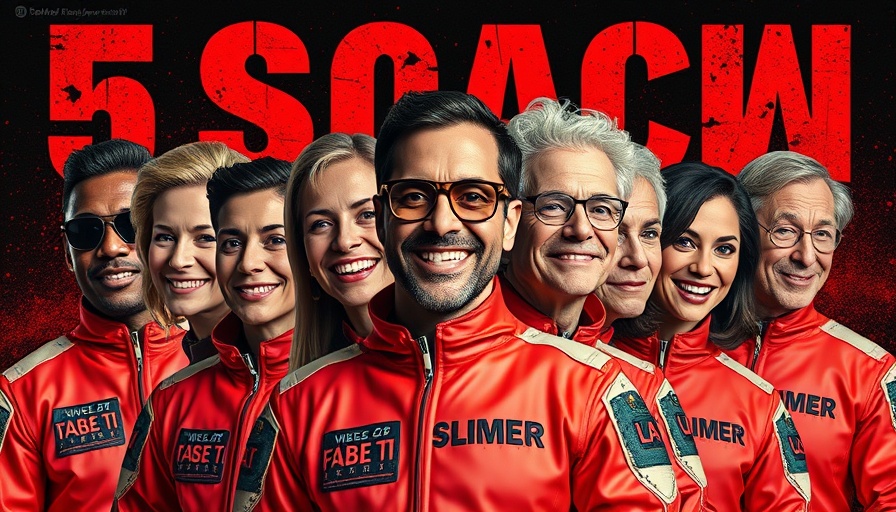
Space Oddities: Celebrities and Their Astronaut Dreams
In the recent episode titled "Space Karens, Desert Weirdos & the Ghost of Trump Cameos Past," Ben Shapiro takes us through an engaging yet sardonic look at the recent Blue Origin NS-31 mission. Funded by billionaire Jeff Bezos, this endeavor marks an unusual intersection of celebrity culture and space exploration. The mission aptly named "The Six Who Take Up Space" featured personalities like Katy Perry and Gail King—not your typical astronaut crew, but rather a set of influencers aiming to monetize their journey through social media.
In 'Space Karens, Desert Weirdos & the Ghost of Trump Cameos Past,' the discussion dives into celebrity space culture, exploring key insights that sparked deeper analysis on our end.
The idea of launching a crew filled with celebrities who are famous for being famous raises questions about the actual advancements in space travel. What does it mean when the first all-female space flight is led by women who, rather than work in the STEM fields, are instead cashing in on their social media clout? Shapiro humorously criticizes the notion that this flight is a significant landmark, comparing it to a Disney ride rather than a leap for mankind.
Fame Over Function: The New Age of Space Travel
The reality is that the much-touted achievement of sending an all-star cast to space for an under-11-minute flight is a reflection of our society's increasing weirdness. Katy Perry's enthusiastic reactions seem more befitting of an Instagram influencer than a serious scientist. As Shapiro states, throughout the flight, the real emphasis appeared to be on social media share-worthy content rather than the science behind space travel. This trend raises concerns about the public's perception of space exploration and who it serves.
While space travel should be about pushing technological boundaries and scientific discovery, here we have a group of entertainers treating it as a backdrop for selfies and personal branding. Shouldn't we expect our astronauts to delve deeper into engineering and physics rather than seeking viral fame?
The Festival of Absurdity: Coachella and Corporate Culture
As we zoom out from space, Shapiro also takes a trip to the Coachella Music Festival, describing it as a gathering of "unemployed hipsters" and highlighting how its ticket sales struggled in comparison to previous years. With some concertgoers adopting bizarre fashion choices, it reflects a deeper cultural shift where absurdity takes precedence over talent. In contrast to the fascination with outer space, we are instead left with mundane performances and superficial expressions at one of America’s most-watched festivals.
Despite economic challenges impacting ticket sales for such events, Coachella persists as an emblem of modern culture—folding the frustrations of inflation and economic downturn into its experiential fabric. It's as if these festivals hold a mirror to our society, reflecting the frivolity that many Americans critically discuss amidst rising costs and changing job markets.
The Trump Cameo Debate: A Curious Case
Furthermore, Shapiro's discussion around Chris Columbus wanting to edit Donald Trump out of "Home Alone 2" surfaces intriguing conversations about how America views its prominent figures, showcasing a double standard. On one hand, Trump has made headlines for his larger-than-life persona; on the other hand, Columbus’s desire to wish away Trump's cameo is indicative of how influential media personnel can selectively shape narratives.
Through this lens, it’s easy to see how decisions made within the entertainment sector can influence the broader political and social dialogue in America. This echoes a significant yet troubling dichotomy between the ideals of freedom of expression and the pressures exerted by public opinion.
Returning to Realities: Navigating Economic Fears
As we juggle between celebrity space voyages and music festivals, Shapiro encourages us to engage openly in discussions about our shifting economy, democracy, and how they intertwine with the performance of public figures shaping our collective experiences. It puts into perspective how we might reclaim the dialogue disrupted by those who prioritize fame over function, as our society seeks to find its footing amid economic anxieties.
Ultimately, this reflection compels Conservatives to reconsider the implications of entertainment, technology, and the societal value of realism over recreation, particularly in reinforcing the foundations of America. While celebrities take pleasure in their escapades, ordinary citizens are tasked with the challenge of preserving integrity and paving pathways for future generations.
 Add Row
Add Row  Add
Add 




 Add Row
Add Row  Add
Add 

Write A Comment